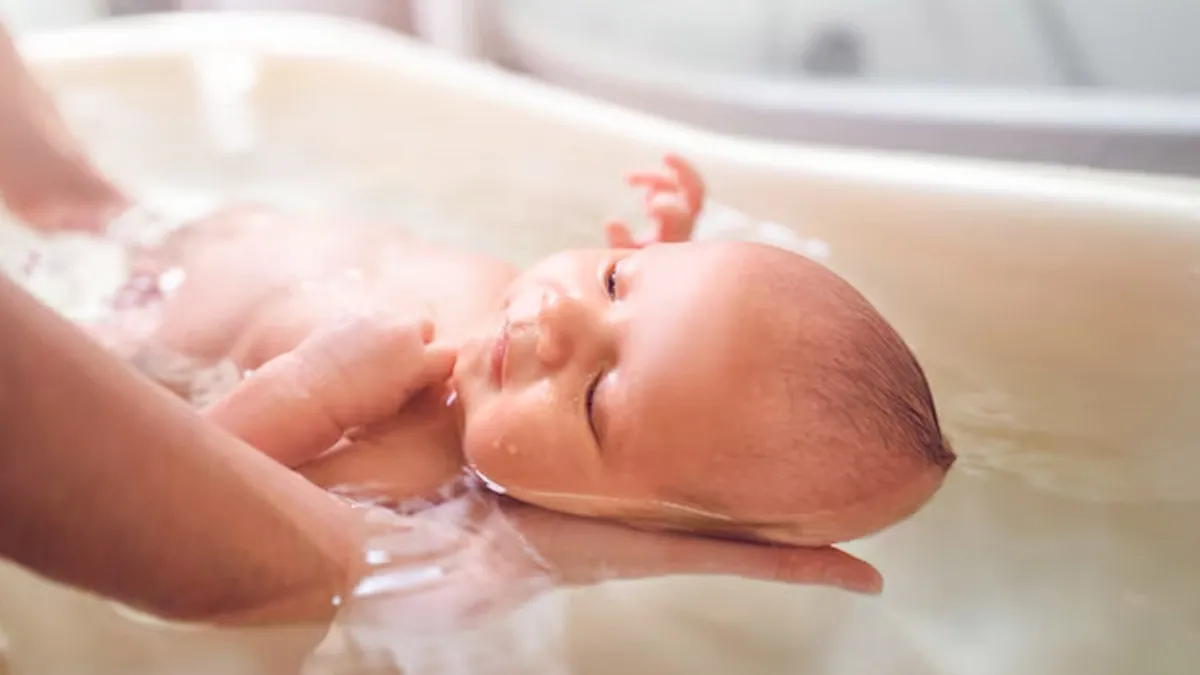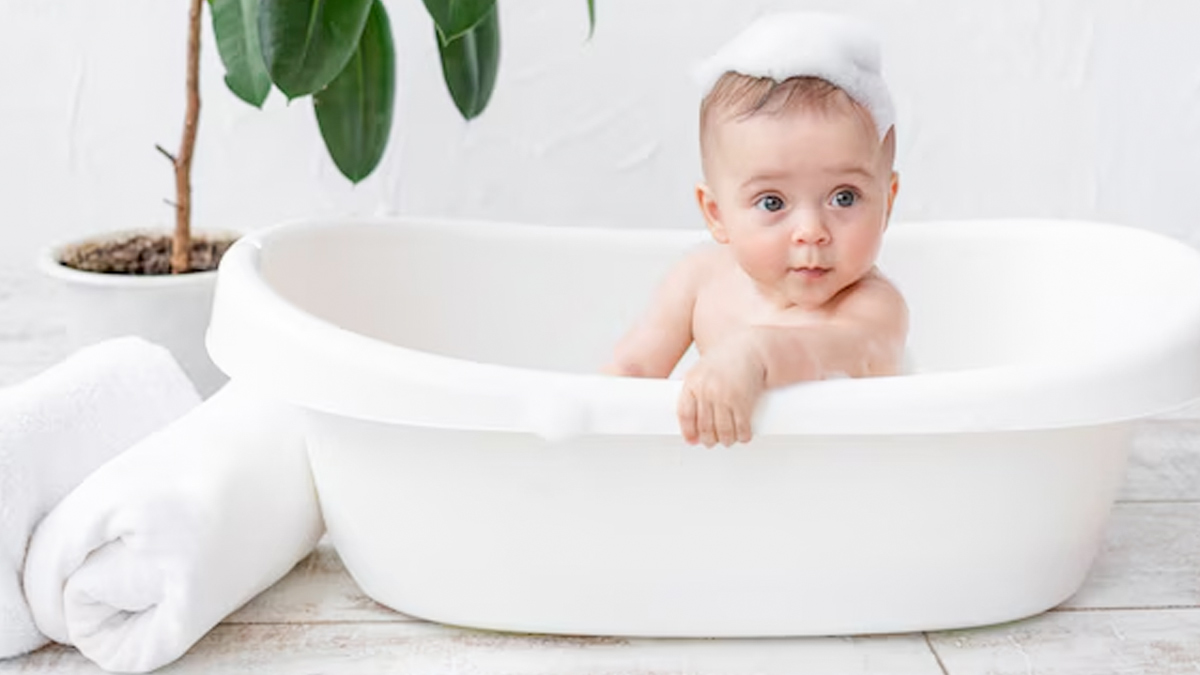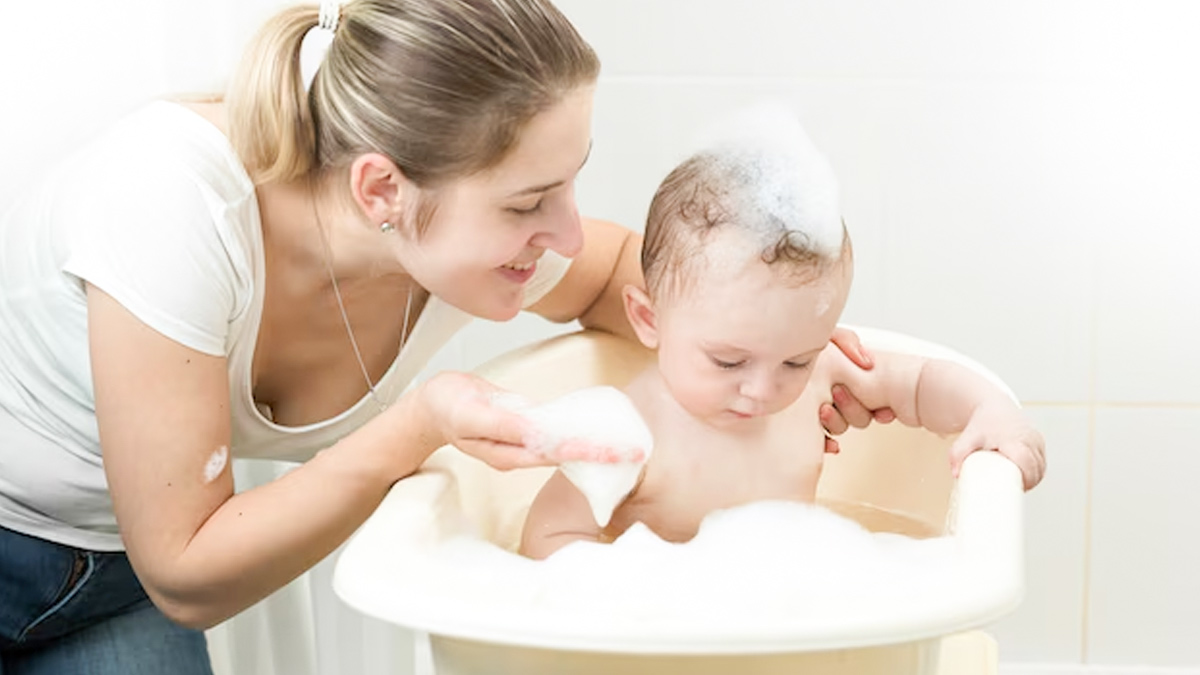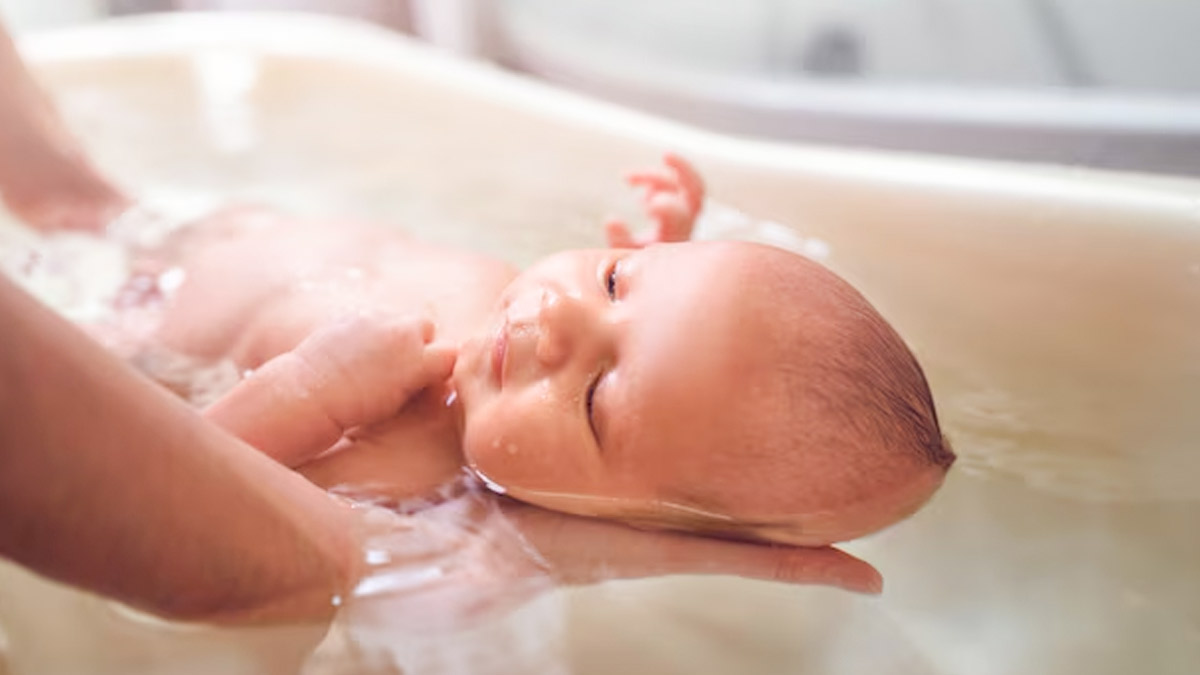
For new parents, bathing their infants can be an overwhelming and stressful task. Not only do moms and dads feel the pressure to be gentle, but they must also ensure that they maintain their babies’ hygiene. Amidst all these, mistakes are bound to happen – whether it be selecting suitable products or post-bath care.
Table of Content:-
In this article, we uncover the most common bathing mistakes parents make and share useful tips that can help parents maintain children’s skin health.
Mistake 1: Neglecting Water Temperature For Bathing

In an interaction with the OnlyMyHealth team, Dr Suresh Kumar Panuganti, Lead Consultant-Paediatric Critical Care and Paediatrics, Yashoda Hospitals, Hyderabad, shares one of the most common mistakes parents make during their child's bath time, which is neglecting the water's temperature.
He says, "The water temperature should be between 37 and 39 degrees Celsius."
If you don't have a thermometer, the mother can dip her elbow to see if the temperature of the water is comfortable for her or not.
Mistake 2: Using Bathing Products With Harsh Chemicals

Another mistake listed by Dr Panuganti is using products with harsh chemicals just because they smell good or produce a lot of foam. “A baby's or child's skin is very sensitive, so parents should use products recommended by a paediatrician only,” she says, adding that one should not leave their baby/child in the water for long, as it dries their skin, causing rashes or redness.
One should look after the products which do not contain any kind of fragrances/perfumes/essential oil blends; synthetic dyes; parabens; phthalates; formaldehyde; propylene glycol; sulphates such as sodium lauryl sulphate or sodium laureth sulfate; chemical sunscreens which contain avobenzone, benzophenone, homosalate, methoxycinnamate, octinoxate, octisalate, oxybenzone or PABA.
Instead, some of the things one should look for are pH-balanced baby wash or soap; that means it should neither be too acidic nor too alkaline. Products should also be a tear-free formulation with natural products that keep eyes safe and skin gentle.
Mistake 3: Not Moisturising Children’s Skin After Bath

In addition to avoiding bathing mistakes, parents should also maintain a post-bath skincare routine, which includes proper moisturisation. Dr Panuganti suggests that newborn babies may not need any lotion after bathing, as their skin is too gentle, but still, if one wants, they can apply a gentle, unscented moisturiser on their infant's skin.
“For grown-up kids above age two, parents can use a delicate body lotion that creates a barrier to avoid water loss from the skin, keeping it moist and soft. Moisturiser will also reduce the dryness and itchiness from the skin,” the doctor adds.
Also Read: Expert Lists Down Foods That You Should Avoid Giving Young Children
How Often Should Parents Bathe Their Children?
For infants (0–12 months), bathing 2–3 times a week is sufficient, but it is also important to give a gentle wipe on the diaper area, neck, and face on a regular basis.
Dr Panuganti further advises that in climatic conditions like India, kids should bath daily and occasionally even twice a day depending on the temperature and the child’s activity. Special attention should be given to areas like the diaper area and genital area.
Conclusion
Bathtime is a crucial part of a child's hygiene regime, but it can be overwhelming. From ensuring the correct water temperature to selecting mild, paediatrician-recommended products and not forgetting to moisturise afterwards, every detail matters when it comes to safeguarding your child's delicate skin. By avoiding such common errors, parents can help their infants remain clean, comfy, and healthy without compromising the natural barrier of their skin.
Also watch this video
How we keep this article up to date:
We work with experts and keep a close eye on the latest in health and wellness. Whenever there is a new research or helpful information, we update our articles with accurate and useful advice.
Current Version